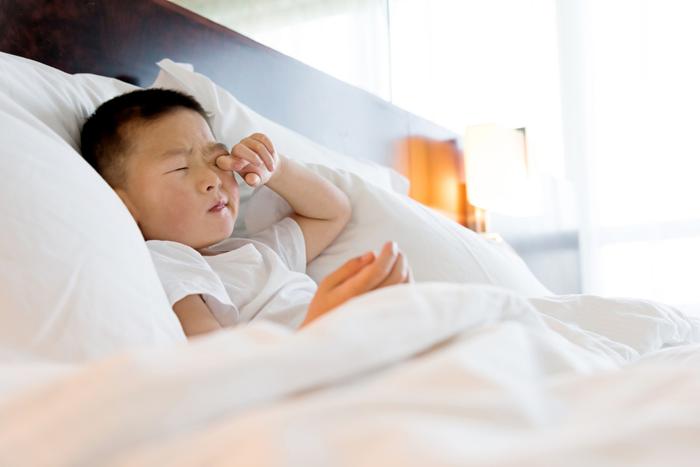
Researchers worry about the effect this could have on academic performance and social interactions

Kristen Dalli Reporter

Recent studies have explored kids’ sleeping habits and found that quality sleep is hard to come by for the younger demographic. Unfortunately, that lack of sleep can have a negative effect on children’s mental health.
Now, researchers from the Children’s Hospital of Philadelphia have found that children’s sleeping patterns could impact their overall well-being.
“Our study shows that although those with persistent sleep problems have the greatest impairments when it comes to broad child well-being, even those with mild sleep problems over time experience some psychosocial impairments,” said researcher Ariel A. Williamson, PhD.
The effect of sleep troubles
To understand how sleep can affect kids’ overall well-being, the researchers analyzed information from over 5,000 children involved in an Australian birth cohort study.
The study followed the children from birth through 11 years old, with parents reporting on their typical sleeping habits at various points throughout the study. For more intel on how the kids behaved in school, performed in school, or engaged with other kids, the researchers collected reports from teachers, caregivers, and parents.
Children who had some sleep struggles through preschool age, which comprised less than 10 percent of the children involved in the study, experienced some of the more mild side effects resulting from poor sleep. Though sleeping issues dissipated at a young age, this group was still susceptible to mental health struggles, and parents and caregivers reported a lower well-being than those who had never experienced trouble sleeping.
On the opposite end of the spectrum were children who had poor sleep from birth through age 11, which included roughly eight percent of the kids in the study. The researchers found that the kids in this group had poorer academic and interpersonal outcomes. They also experienced more psychosocial barriers.
Moving forward, the researchers hope that parents and medical professionals have more in-depth conversations about kids’ sleeping habits so that appropriate treatment options are considered and administered as early as possible.
“The range of impairments across academic and psychosocial domains in middle childhood indicate that it is important to screen for sleep problems consistently over the course of a child’s development, especially to target children who experience sleep problems over time,” said Williamson.